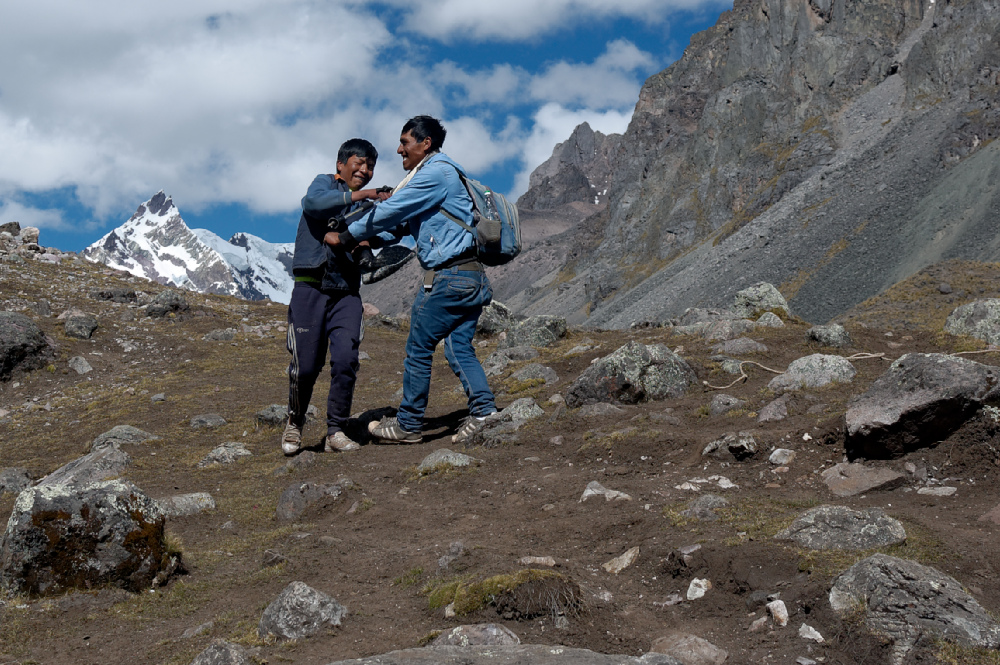You can feel it when you do something for the first time, thrill, excitement, a little fear from the back of your head. First time I go to high mountains alone for a few days. I’m going to meet Apu Ausangate. The next step in the exploration of the cactus Huachuma (San Pedro)
Early in the morning I leave Pisaq to Cusco, it is only forty minutes drive el collectivo (cheap public transport). In the former capital of the Inca, and today a large city with almost a million inhabitants, I do my last shopping and catch a bus to Tinka. One hundred kilometers goes almost three and a half hours. I’m the only gringo on the bus, which always rapes Peruvians, they are curious about what I’m doing here. One of them turns out to be an old mountain guide who lives in Upis Bajo. A good coincidence, because I’m heading in that direction and he can take one-third of the normal rate. Then I continue on foot.

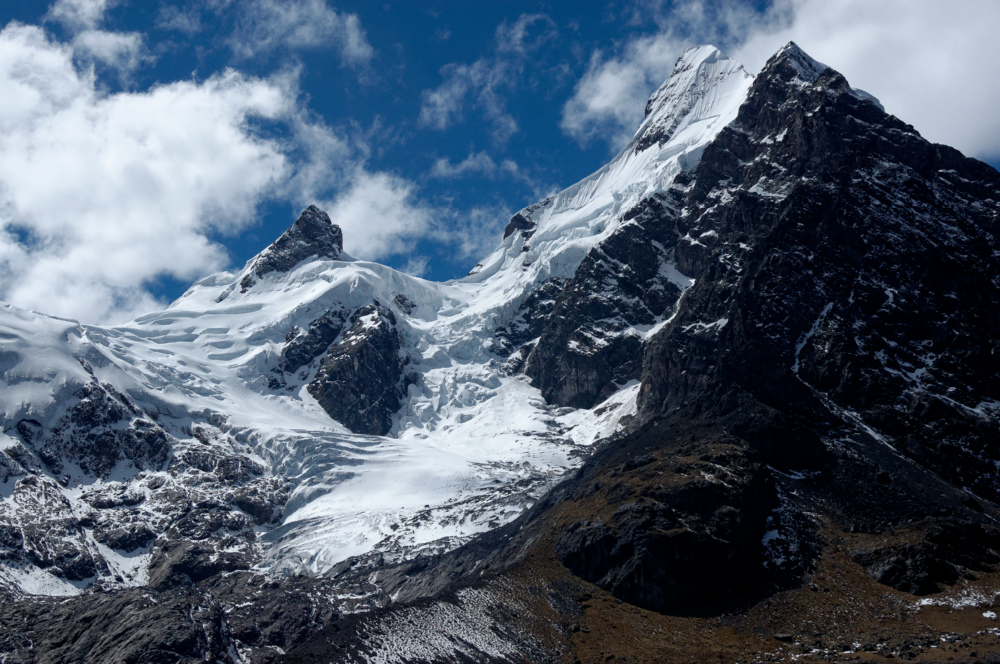
The first day of the march I start from ascent to the top of the Arapa Pass at 4750 m above sea level. I carry a backpack of twelve kilograms, stopping and resting every few seconds. It is a beautiful day. I climb onto the first and second pass with a grin. In between I pass over a dozen lagoons, the glacier is very close.

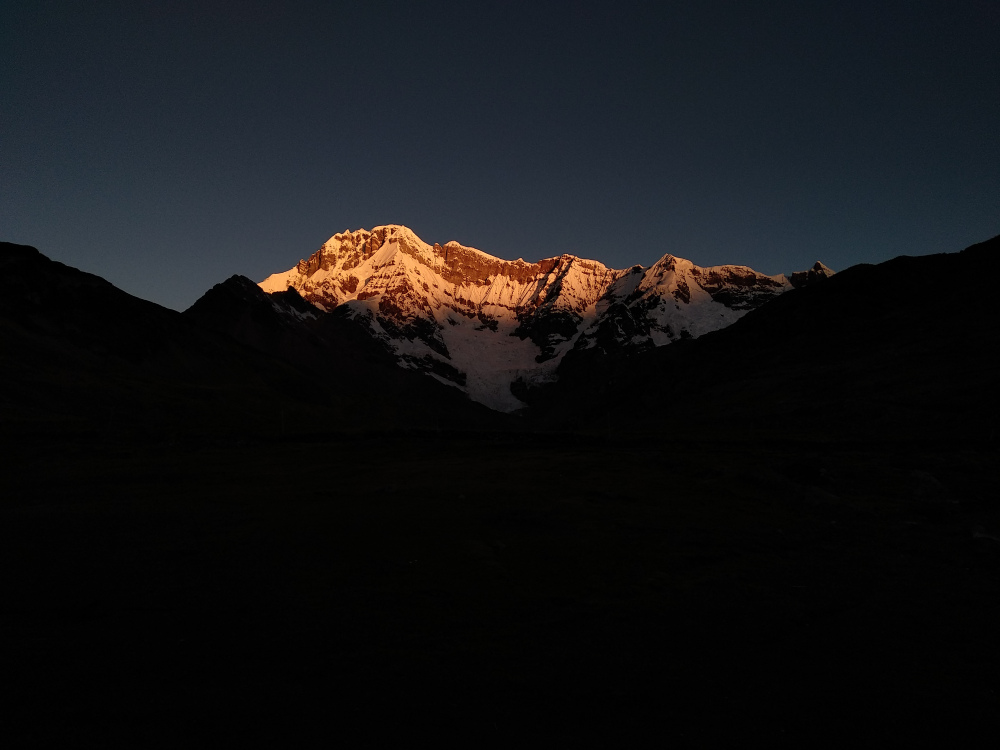
When you traveling around Peru, especially in the Andean region, you will probably hear or read the word apu. In Inca mythology, apu is the name given to the mighty mountain spirits. The Incas also used apu to refer to the holy mountains themselves; every mountain had its own spirit. Apus were typically masculine spirits, although there are some feminine examples. Apu operates in three kingdoms: Hanan Pacha – the upper land, Kay Pacha – human land and Uku Pacha – the inner world or underground world. Mountains – rising from the human world to Hanan Pach – offered the Incas a connection with their most powerful gods in the heavens. Mountain spirits also served as protectors, guarding the surrounding territories and protecting the surrounding residents. In difficult times, the Apus was satisfied or summoned by the victims. Placing gifts such as chicha (corn beer) and coca leaves was commonplace. In desperate times the Incas also used human sacrifices.
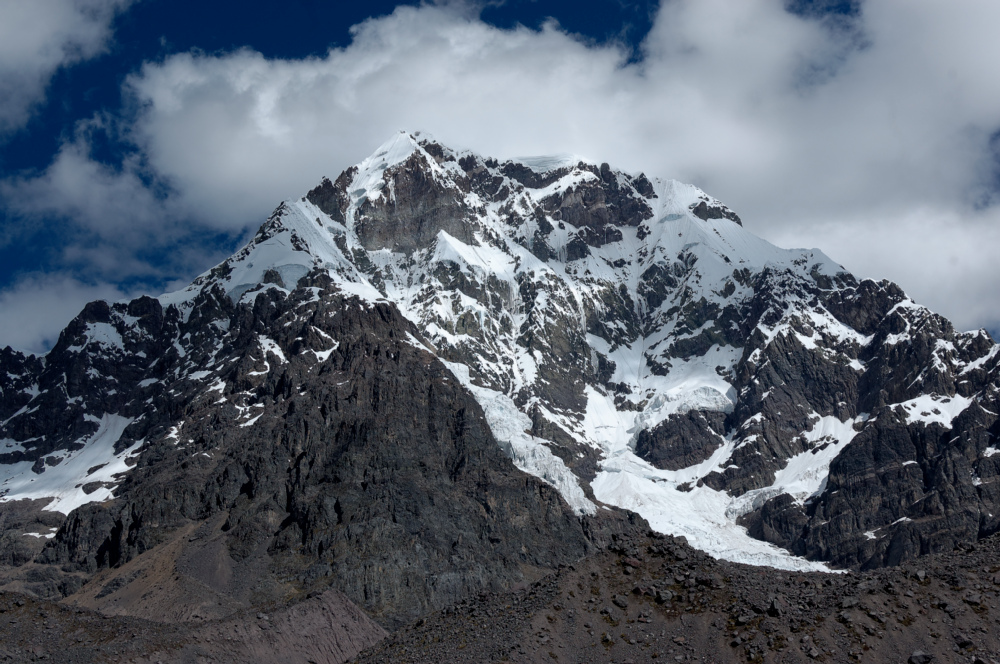
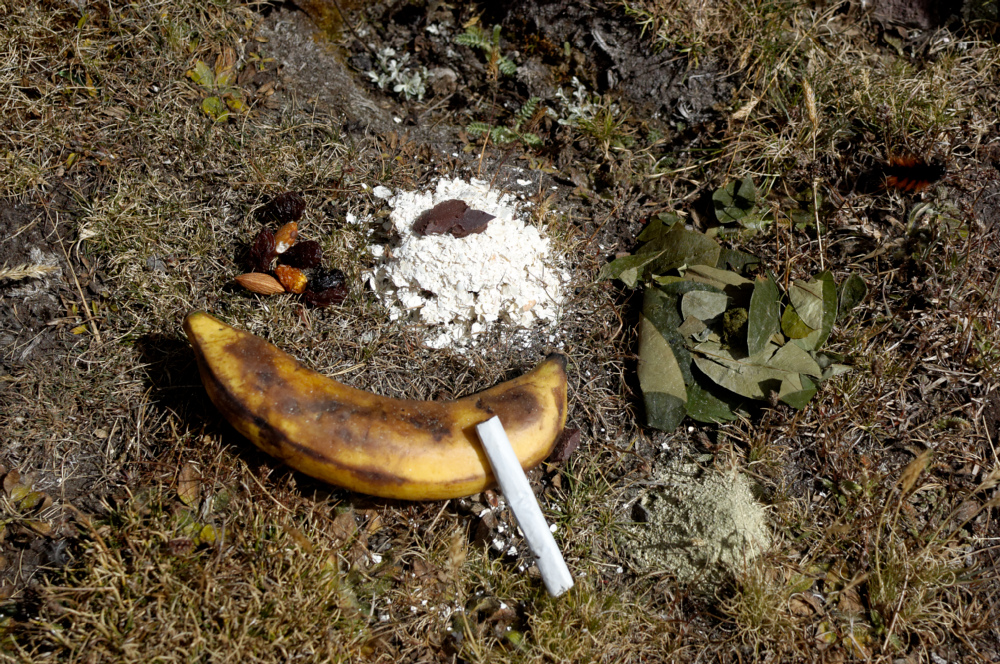
“Ausangate is the highest and most respected Apu in the mountains from Cuzco to Lake Titicaca. In the region of Apu Ausangate and nearby lakes – among which Sibinacocha stands out – a male energy is born that fertilizes Mother Earth Pachamama. After a long run of water, they die in the unknown lands of the Amazon to return and fill lakes and glaciers transformed into a river of stars or Willkamayu, known to us as the Milky Way. “

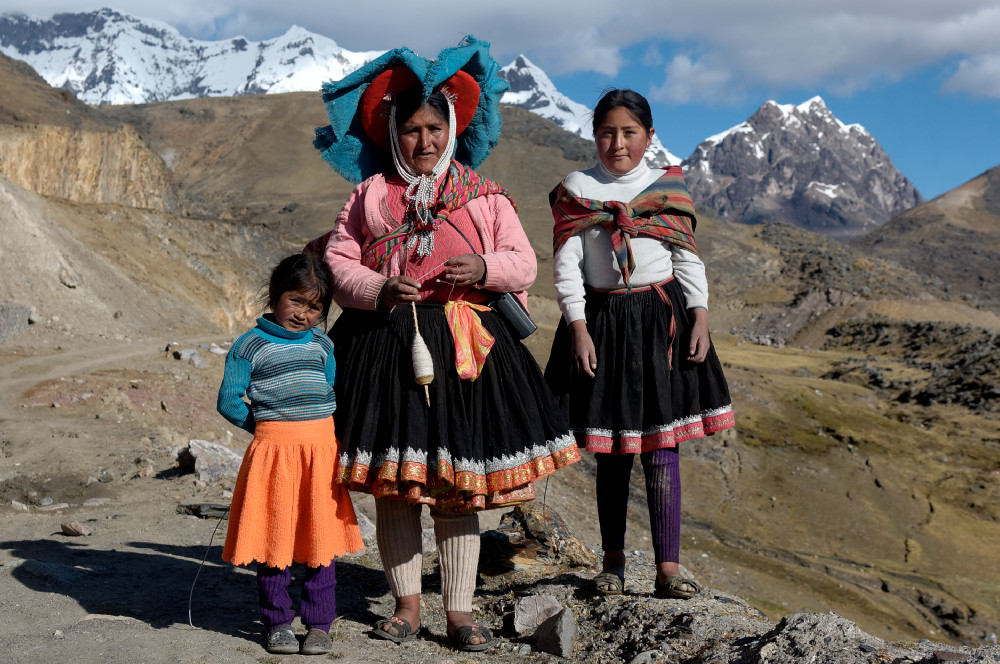
“Because of Ausangate we are here, we all exist. We give Him sacrifice, and He gives us everything in return. Ausangate cares about everything, animals and people. Thanks to Ausangate, there are plenty of them, because we offer him sacrifices. He gave us all these things. It gives us potatoes and chuño (processed potatoes, they are the result of dehydration usually through freeze-drying at high altitude) .”
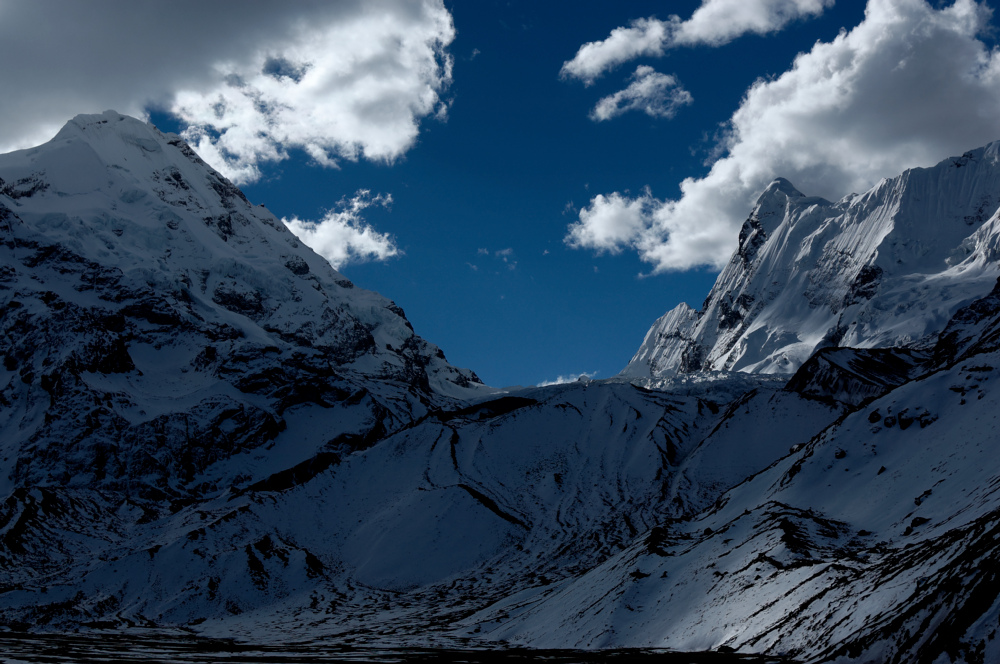
In the morning I wake up in a frosted tent, the water in the bottle froze. That day I do not eat breakfast, porridge with chocolate and dried fruit, I do not drink warm tea. That was the plan the day when I have to pass the highest pass and I will be closest to the glacier I only eat the cactus Huachuma (San Pedro).

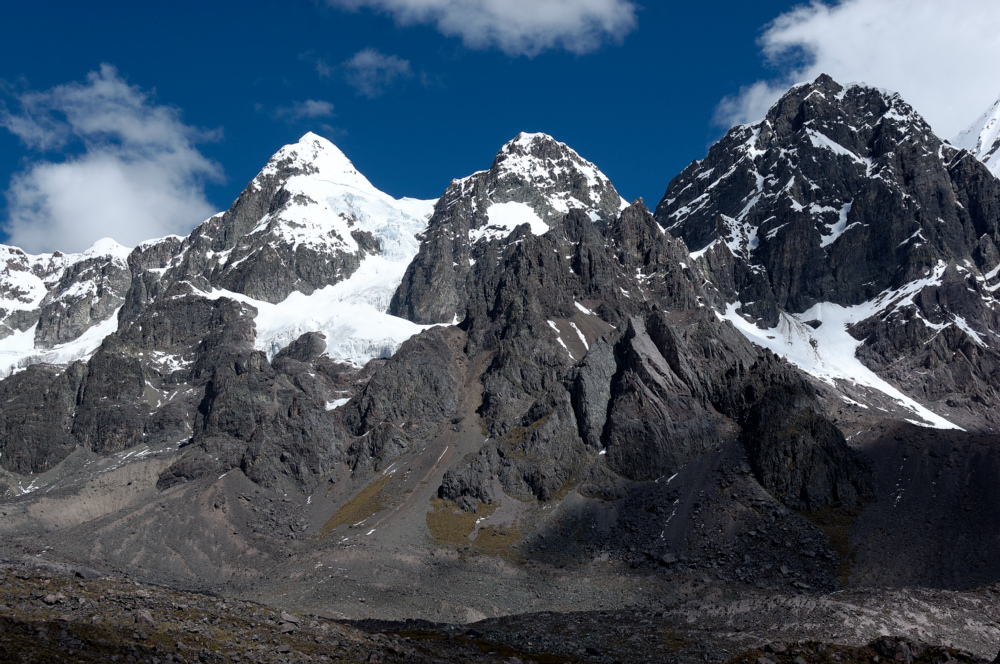
March. Trance. Stop. Look into the ground. Earth. Air. Cactus in the stomach, spreads over the body, coca leaves chewed slowly, step by step, forward, uphill.
In the last weeks, a lot of snow was attacking, the landscape is getting winter, after three hours I reach the Palomini pass 5200 m above sea level. The sun burns hard so much, so that the snow which usually does not occur on this route begins to melt and make a slush with clay, the whole mountain literally starts to slide down. I do not think for a long time, I have to go down a few hundred meters below where there is less snow, otherwise I risk getting stuck.
.

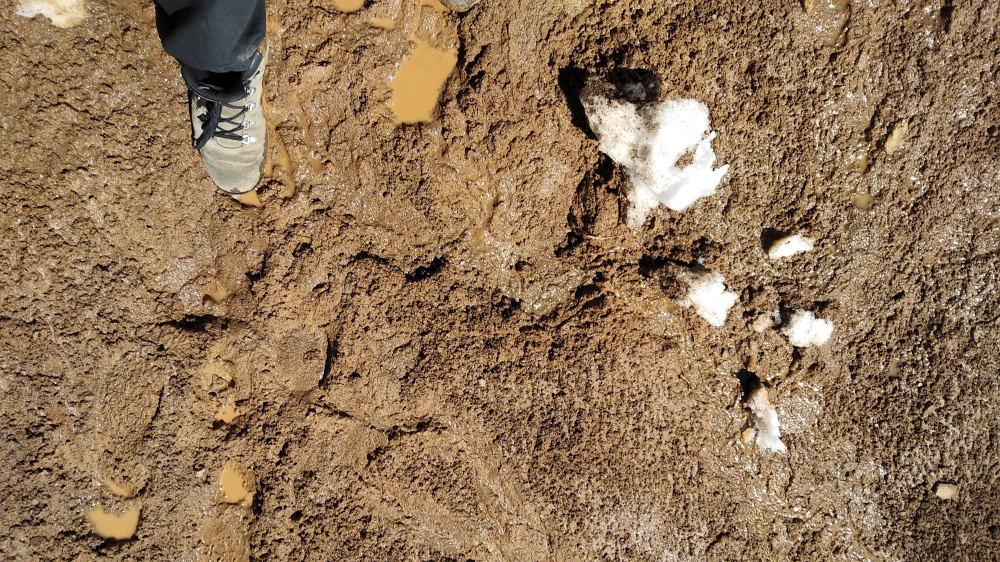
When you are here, you have no doubt that it is exactly what is so powerful. And the Quechua people who live around him have a relationship, they are connected.
Apu and Huachuma together, the cactus is in me, and I am on the mountain, I am a cactus, and the mountain is me, in psychedelic worlds you can get lost beautifully, in the chaos find full peace and harmony, which has its roots in it. Borders are conventional, we create them in our mind, concepts, words, meanings based on a dualistic vision of the world, everything is conventional. The boundary between what is external and internal, between me and the world is blurred by the dissolution of thoughts, and clarified by sensations in the body.
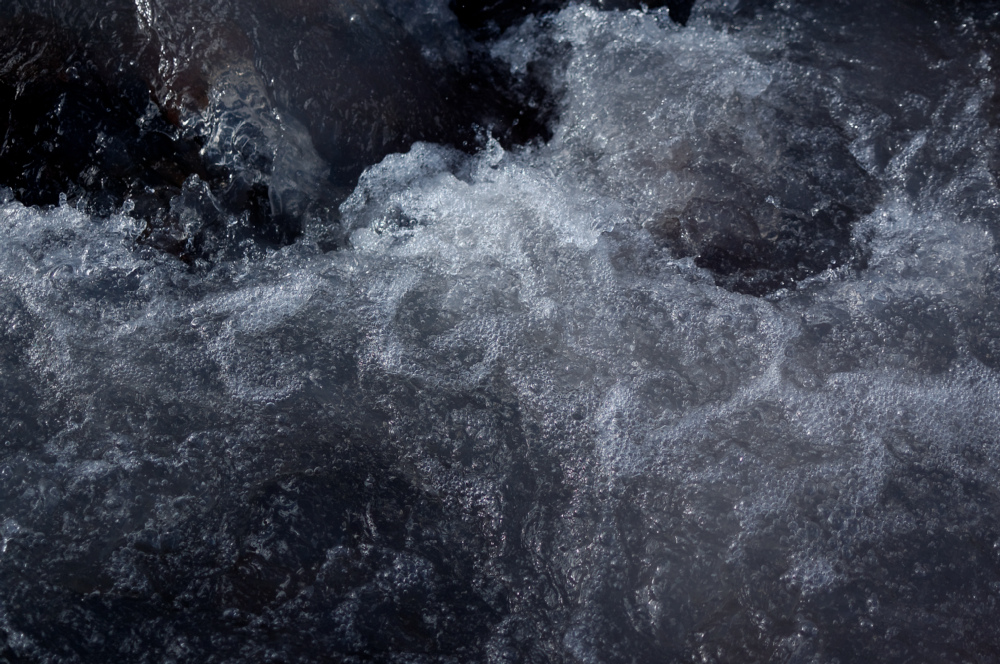
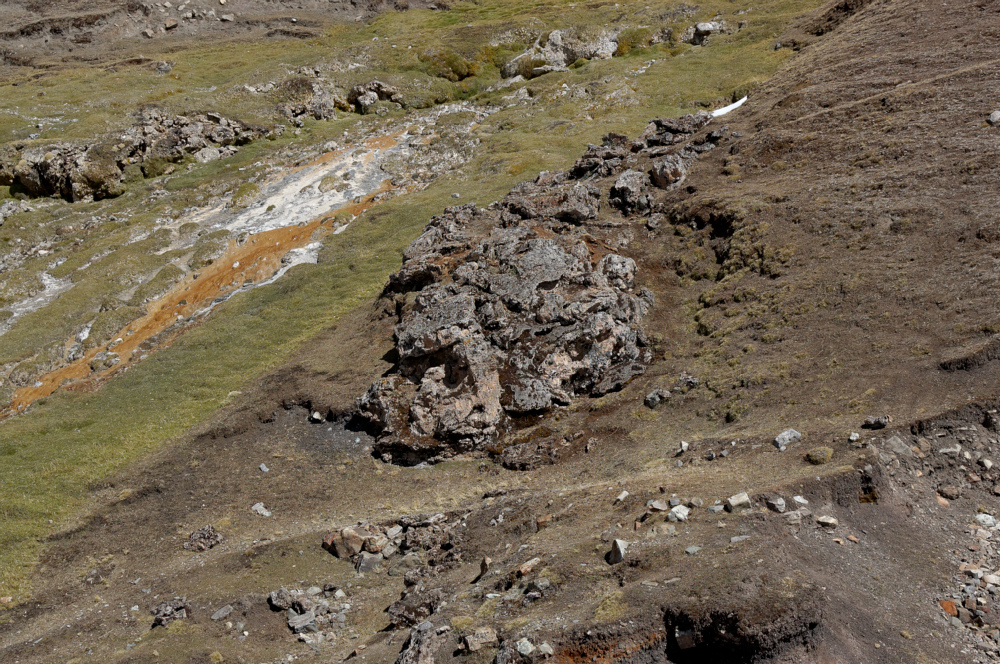
The cactus is very sensual, bodily and artistic . It can be expressive, and at the same time subtle, anesthesia, and at the same time sensitizes. It leads to crying, it makes you laugh.
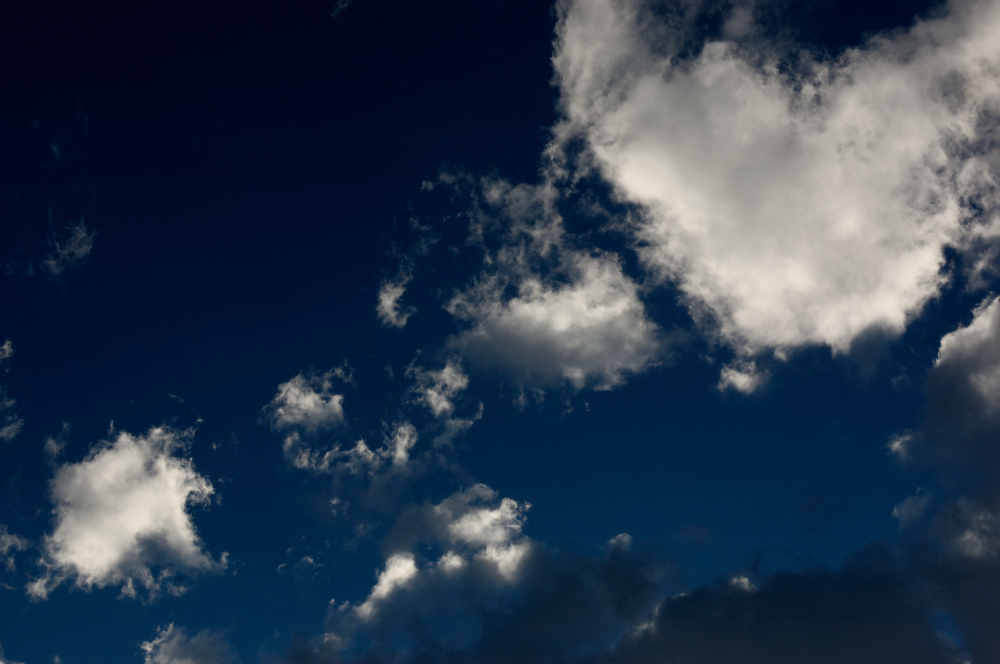
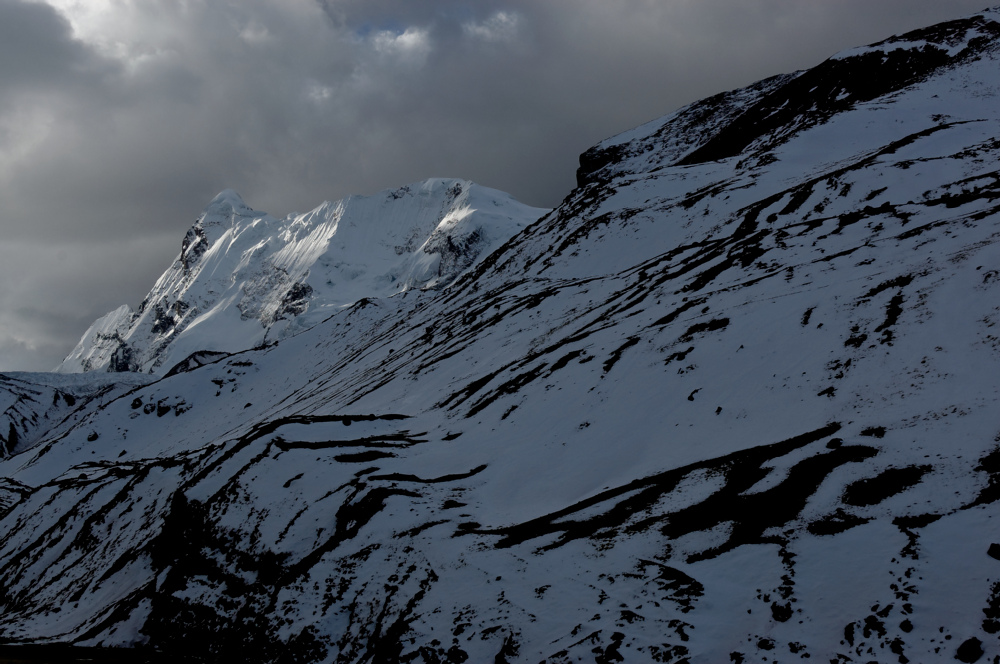
It’s best to feel and experience it. And it can be described in the language of poetry, the language of the senses or the language of art. Me leads through photography. I want to connect to it in places where I meet with the elements. Water, air, rocks, sun, their relationship creates a movement, form, shape, image. These are living, intelligent, sentient and wise beings for me.
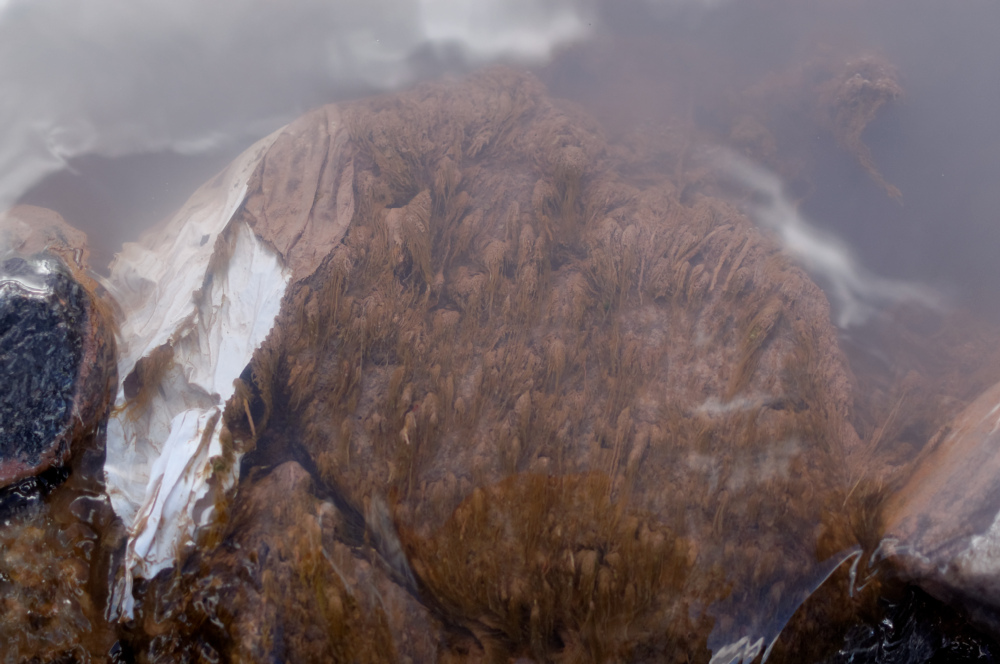
Clouds dance with the wind and rays of the sun, the water does not resist, the years of erosion can be seen on the rock, only the summit stands motionless. The spirit of Meskalito manifests itself in every element, and I try to capture it, as a rule this mission is doomed to failure, because they are intangible, and the effect is only a reflection of these efforts.
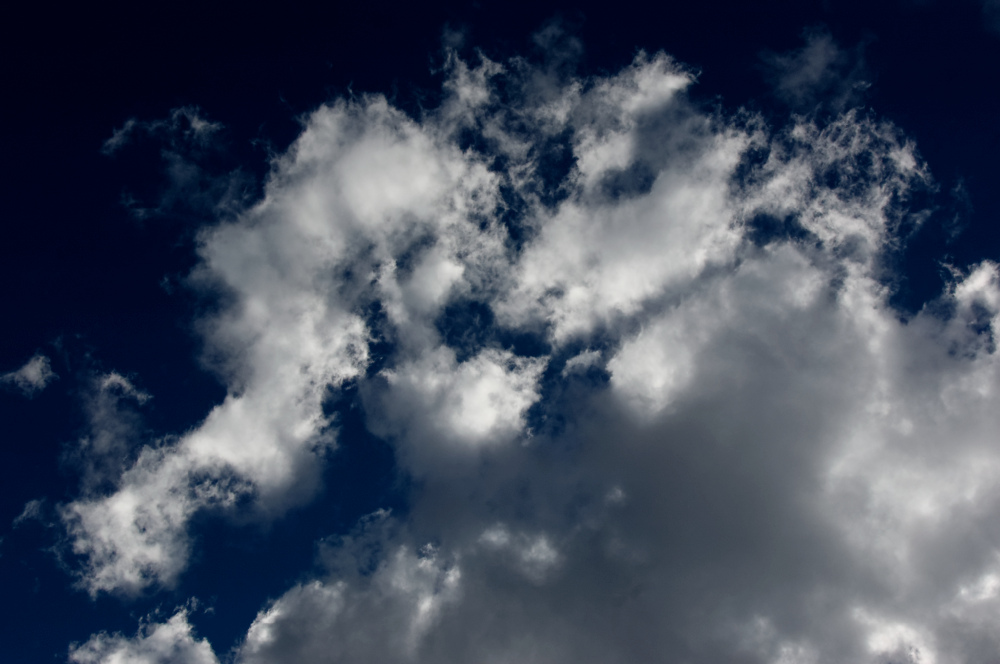
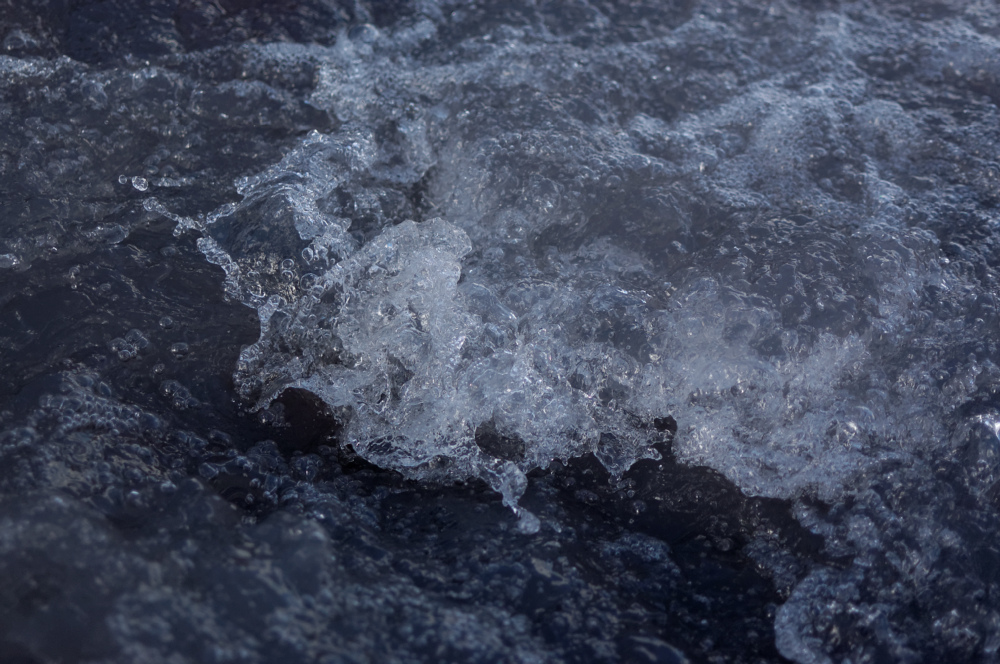
Work is done in between. On values, feelings, open heart. Straightens and cleans. San Pedro is a vision plant. It shows through imaginations and projections. Answers come, I feel what my small role is in this great theater. I do what I do to share what I think is beautiful. Expeditions into wild nature, a session with a cactus in the high Andes, an idea that is just being realized.

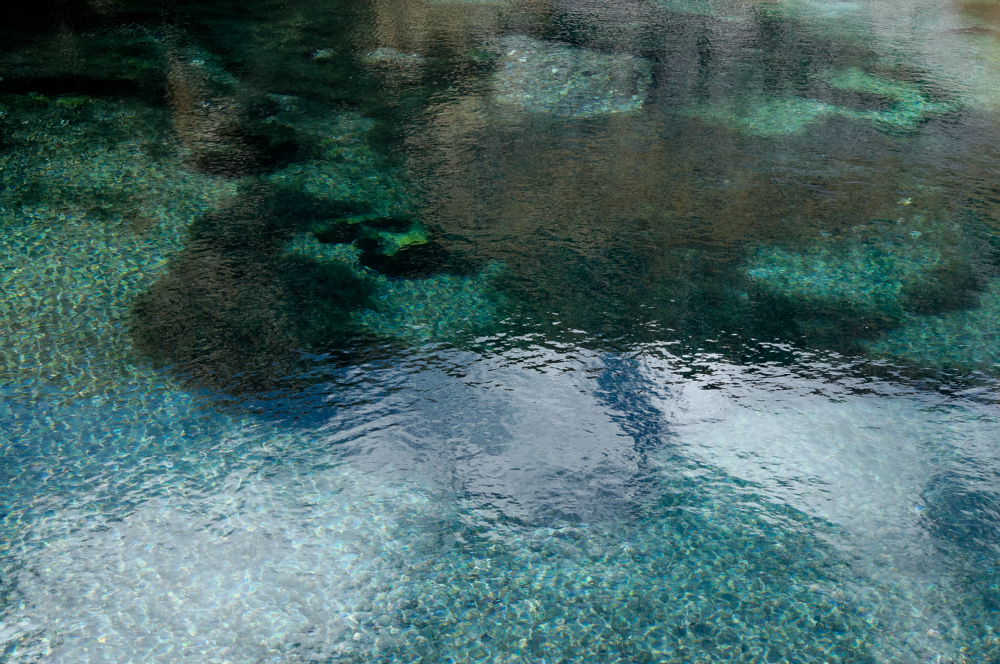
I went to the mountains alone, but I do not come back alone. Even in such a deserted place as Ausangate people meet. I am going to the nearest settlement Machu Wasi near the glacier. I spend the afternoon with an Australian named Showza bearing a very Czech name and brothers 13-year-old David and a little older Alejandro. Showza shows me photos from different parts of the world. In the Machu Wasi there is a solar panel, so we listen to music. I show David how the camera works, we cook together, tell stories.
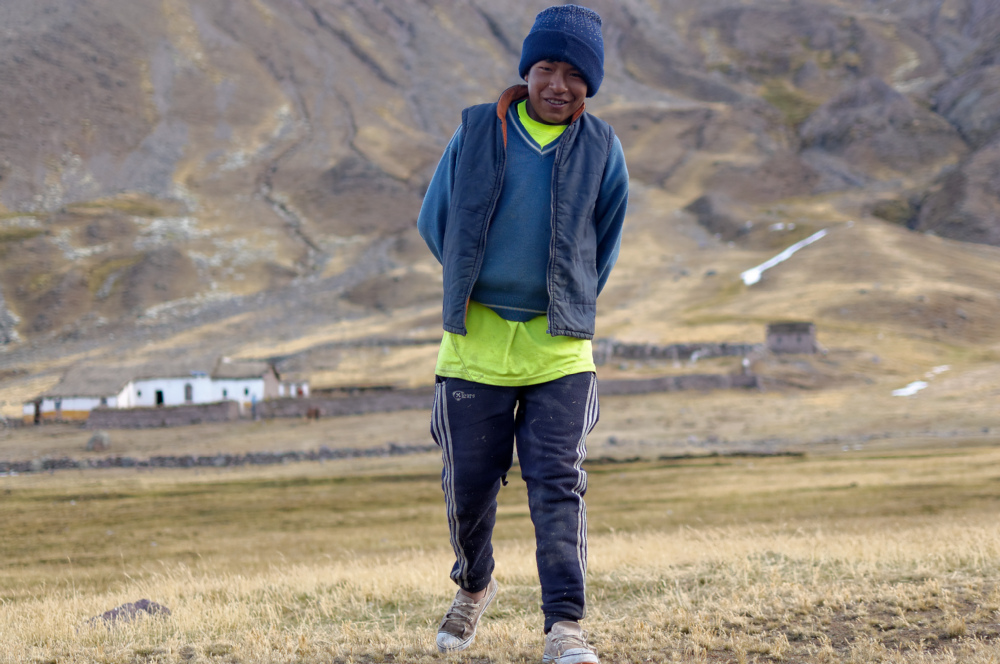
The afternoon spent under the glacier means that we must march three hours longer on the last day, which is why we get up before sunrise. I give luggage to Alejandro’s horse, almost 30 km to Paqchanta, the Jampa Pampa and the Lompa we pass less than ten hours. The weather is good. All right.

